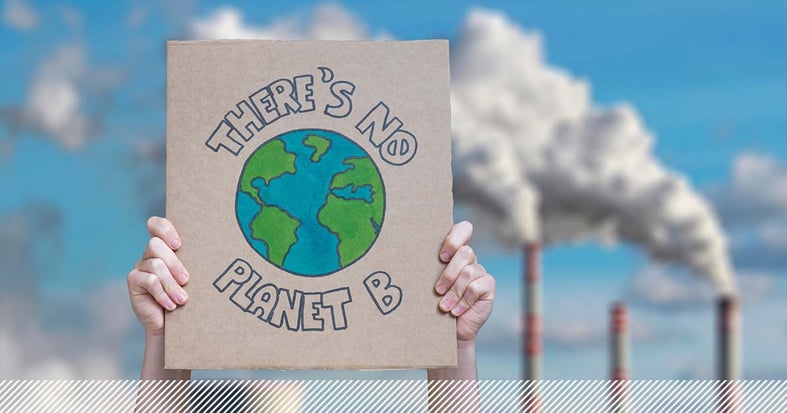Climate, water and food shortages top consumer concerns: food waste prevention addresses all

Over the past 12 months the environmental issues that have seen the most increase in concern among consumers are climate change, water shortages and food shortages, according to a new survey from market research firm Mintel.
All three of those–as well as 8 of the full 10 most pressing environmental concerns among consumers–can be directly addressed with a single initiative that has a nexus impact: preventing food waste.
These new findings, combined with other recent research showing increased awareness of food waste among consumers, reinforces the opportunity foodservice operations have to address their customer’s top-of-mind environmental concerns by addressing food waste.
"The fact that concerns around climate change and water and food shortages are being prioritized … points towards the emergence of a more informed and hardened global consumer,” said Richard Cope, Senior Trends Consultant with Mintel Consulting. “Soaring temperatures, extreme weather events and disruptions to food, water and energy supply chains have given consumers a harsh reality check, hurting their health and wallets, and activating them in the process.”
Climate change
When food decomposes, it releases methane, one of the most damaging greenhouse gasses. And because the world wastes one third of the food it produces, food waste accounts for a massive amount of GHG emissions. In fact, if it were a country, food waste would rank third in emissions behind the United States and China. But it is also one of the most actionable solutions to climate change. In its 2020 Drawdown Review, Project Drawdown ranks the importance of various solutions aimed at keeping global warming to under 2oC. “Reduced food waste” is ranked #1.
Water conservation
The 1.3 billion tons of food wasted every year take 45 trillion gallons of water to grow. A whopping 24 percent of agricultural water use.
Pork and beef require enormous amounts of water to produce. According to the Water Footprint Network, when you waste 6 ounces of steak, you also waste 674 gallons of water. Waste a hamburger: 660 gallons. Three ounces of ham: 135 gallons.
When you prevent food waste, you stop contributing to fresh water being squandered.
Food scarcity
According to the UN’s World Food Programme, “All the food produced [in the world] but never eaten would be sufficient to feed two billion people. That’s more than twice the number of undernourished people across the globe.”
Food donation programs have their place in foodservice kitchens, and when safety guidelines are followed should be the first option for diverting overproduced food. Aside from the financial pressure this overproduction places on thin margins, it also is better, from a global hunger standpoint, to leave that food in the food system. This is what’s called “resource-use efficiency,” a priority in the UN’s efforts to feed the world’s hungry. When you prevent food waste, you leave food in the food system for those who need it.
To learn more about the environmental, financial and social benefits of preventing food waste, download our free e-book Why Food Waste Prevention Should be Your Top Sustainability Initiative.
Sign up for our monthly newsletter for the latest in
food waste prevention initiatives, best practices, webinars and more.
